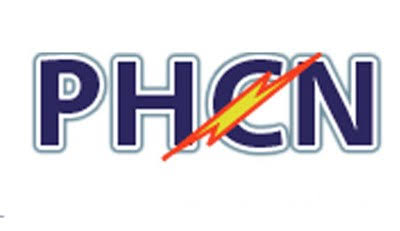Nigeria’s electricity crisis is more than just a tale of poor infrastructure and inefficiency; it is a story of betrayal, corruption, and a privatization process designed to fail. The 2013 privatization of the Power Holding Company of Nigeria (PHCN) was supposed to herald a new era of reliable electricity. Instead, it became one of Nigeria’s most disastrous economic experiments, marred by fraudulent acquisitions, political collusion, and deliberate sabotage.
A decade later, Nigerians still suffer daily blackouts, exorbitant tariffs, and a power sector on life support. The question is: Was PHCN’s privatization a genuine reform or a grand heist?
This investigative report uncovers the rot, the collaborators, and the systemic corruption that turned Nigeria’s power sector into a lucrative scam. It also outlines what the Tinubu administration must urgently do to salvage this national embarrassment
The Great PHCN Privatization: A Masterclass in Fraud
The Flawed Foundation
The privatization of PHCN was part of the Electric Power Sector Reform Act (2005), which aimed to break the state monopoly and attract private investment. However, the process was hijacked by political interests, incompetent investors, and outright fraudsters.
- Ghost Bidders & Front Companies: Many “investors” had no prior experience in power generation or distribution. Some were briefcase companies backed by politicians.
- Underfunded Buyers: The Bureau of Public Enterprises (BPE) sold assets worth billions of dollars to firms with no financial capacity to revive them.
- No Performance Guarantees: Unlike successful privatizations worldwide, Nigeria’s deal had weak enforcement mechanisms, allowing buyers to default without consequences.
The Collusion: How Government and Buyers Sabotaged the Sector
- Debt Manipulation: Before privatization, PHCN’s liabilities were inflated to scare off serious investors while paving the way for favored cronies.
- Asset Stripping: Some new owners looted PHCN’s remaining assets selling transformers, spare parts, and even land; instead of investing in infrastructure.
- Regulatory Capture: The Nigerian Electricity Regulatory Commission (NERC) became a toothless bulldog, allowing DISCOs to extort consumers while providing abysmal service.
The Aftermath: A Decade of Failure
- Worse Power Supply: Despite privatization, Nigeria’s power generation stagnated between 3,000MW and 5,000MW far below the 25,000MW needed.
- Mounting Debts: DISCOs owe GENCOs over ₦2 trillion, creating a vicious cycle of power shortages.
- Exploitative Tariffs: Nigerians pay some of the highest electricity tariffs in Africa for darkness.
The Key Players in the Scam
The Political Cabal
- Former Presidents & Ministers: Some top officials handpicked cronies to buy PHCN assets at ridiculous discounts.
- State Governors: Many pressured the BPE to allocate DISCOs to their allies.
The Fraudulent Investors
- DISCOs Without Capacity: Companies like Ibadan DISCO (IBEDC), Benin DISCO (BEDC), and Port Harcourt DISCO (PHED were acquired by businessmen with no power sector experience.
- GENCOs as Cash Cows: Some GENCO owners diverted gas supply funds instead of improving generation.
The Compromised Regulators
- NERC’s Inaction: Despite clear violations, NERC rarely penalized erring DISCOs.
- BPE’s Cover-Up: The Bureau of Public Enterprises ignored red flags during bidding.
What Must Tinubu Do? A Legacy Rescue Plan.
President Bola Tinubu has a historic opportunity to correct this colossal failure. Here’s what his administration must do urgently:
Audit the Privatization Process
- Forensic Probe: A special investigative panel must uncover:
- How DISCOs/GENCOs were selected
- Where the funds went
- Who manipulated the process
- Prosecute Fraudsters: Recover stolen assets and ban fraudulent investors from future contracts.
Revoke Non-Performing Licenses
- DISCOs that failed after 10 years must be taken over and resold to competent operators.
- GENCOs hoarding capacity must be sanctioned or nationalized temporarily.
Overhaul the Regulatory Framework
- Strengthen NERC: Give it real punitive powers to fine, suspend, or revoke licenses of erring firms.
- End Estimated Billing: Enforce mandatory metering with strict penalties for DISCOs that delay.
Massive Investment in Infrastructure
- Transmission Rehabilitation: TCN’s grid collapses must end; invest in modern infrastructure.
- Renewable Energy Push: Solar, hydro, and wind must complement gas-powered plants.
Worker & Consumer Protection
- Stop DISCOs’ Exploitation: Enforce fair tariffs and compulsory service standards.
- Reabsorb Stranded PHCN Workers: Many were abandoned after privatization compensate them.
Will Tinubu Break the Cycle or Perpetuate the Rot?
The PHCN privatization was not just a failure; it was a scam. A decade of darkness proves that Nigeria’s power sector was **sold to the highest bidder, not the most competent.
Tinubu’s government must choose: Will it clean up this mess and give Nigerians real electricity, or will it continue the cycle of corruption?
The time for half-measures is over. The power sector needs a revolution, not just reforms.
Damilola Omosebi, Investigative Journalism Unit
Stay ahead with the latest updates!
Join The Podium Media on WhatsApp for real-time news alerts, breaking stories, and exclusive content delivered straight to your phone. Don’t miss a headline — subscribe now!
Chat with Us on WhatsApp






